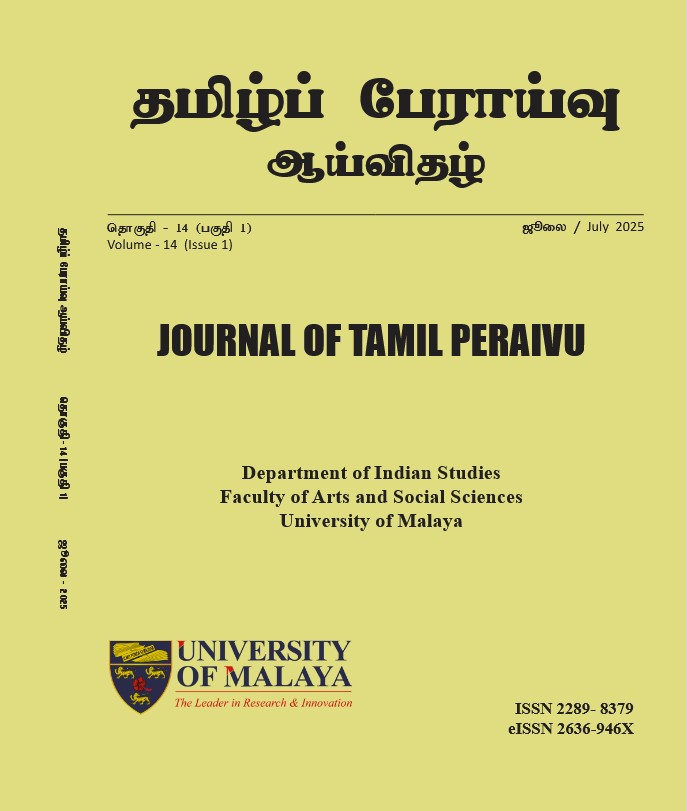1957-ஆம் ஆண்டிற்கு முந்தைய மலேசியத் தமிழ்க்கல்வி வளர்ச்சி
The Development of Tamil Education in Malaysia Before 1957
DOI:
https://doi.org/10.22452/JTP.vol14no1.5Keywords:
Pre-independence education system, Tamil School, Tamil education, Colonial education systemAbstract
This qualitative historical study examines Tamil educational development in colonial Malaya prior to independence, employing Historical Interpretation theory and document analysis from the University Malaya Main Library and National Archives sources. The research reveals the colonial government's systematic neglect of Tamil education from 1870 onwards, with British authorities establishing Tamil schools primarily to secure plantation labor rather than advance educational outcomes. The colonial administration's utilitarian approach reflected broader imperial priorities that subordinated indigenous educational needs to economic interests. Tamil schools functioned as instruments of labor reproduction, maintaining stable workforce populations in rubber and palm oil plantations rather than providing comprehensive educational opportunities. Post-World War II developments marked a significant shift in educational dynamics. While British administrative reforms introduced marginal improvements, grassroots community initiatives emerged as the primary catalyst for educational advancement. Parents and youth organizations mobilized independently to elevate Tamil school standards, demonstrating remarkable agency despite colonial constraints. This community-driven educational development highlights the resilience of Tamil communities in Malaya, who transformed inadequate colonial provisions into meaningful educational opportunities through collective effort. The study underscores how marginalized communities navigated colonial educational policies, ultimately creating sustainable educational frameworks that transcended imperial limitations and laid foundations for post-independence Tamil education in Malaysia.



